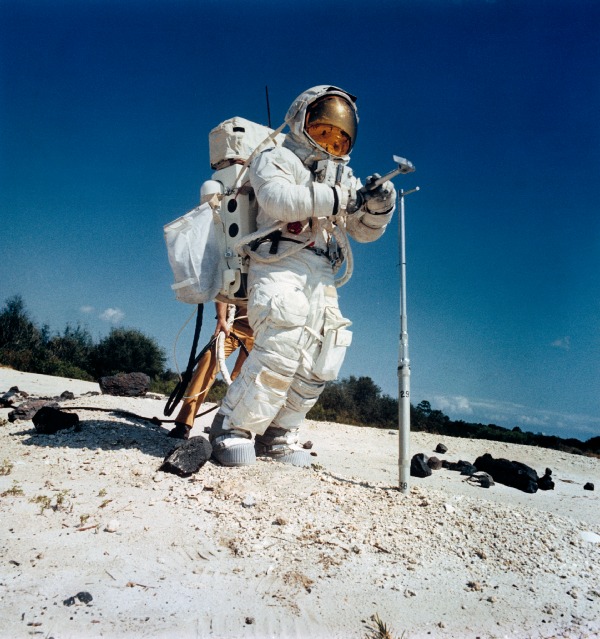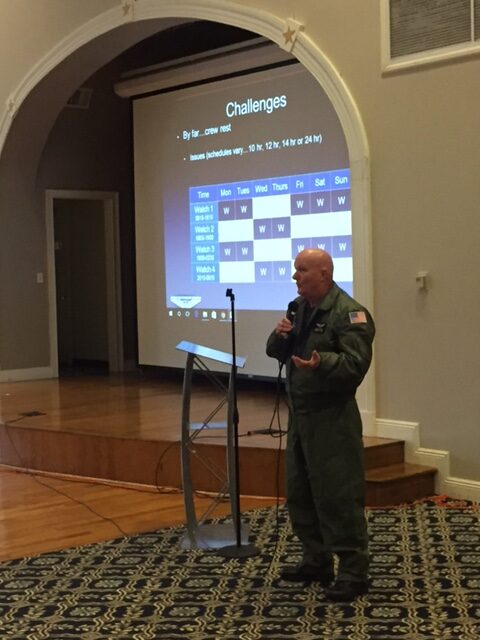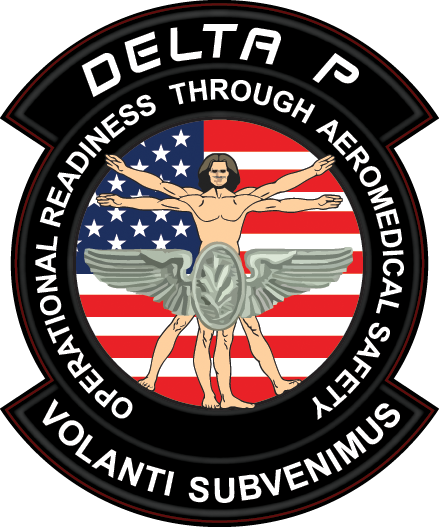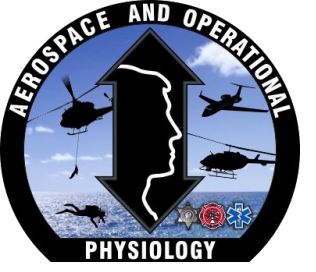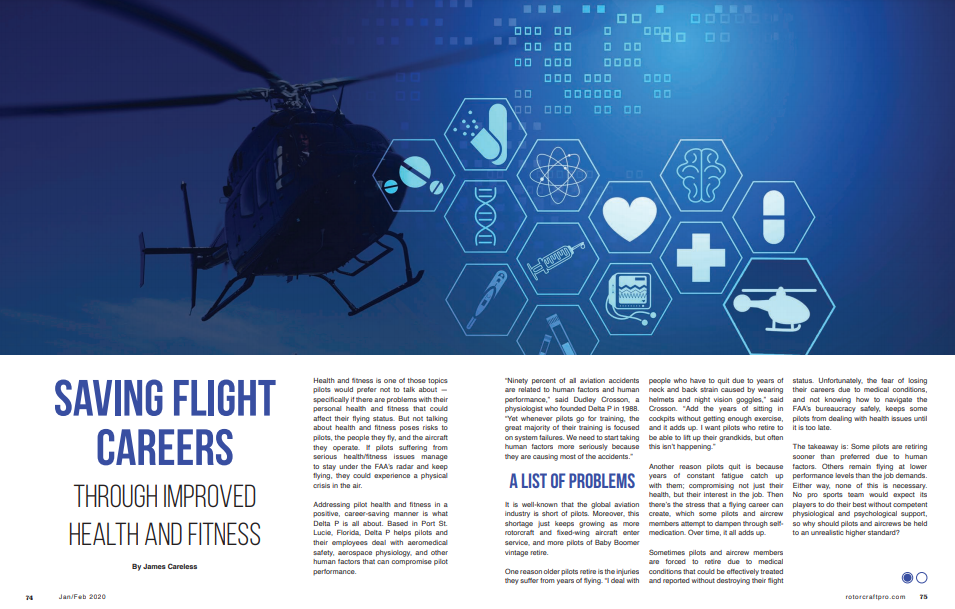
What is an Aerospace Physiologist?
A main focus for Delta P is Human Performance for flight crews. We hear commonly in the news about the pilot shortage. Along with the shortage, new and dangerous threats exist. With most organizations facing both, we need to be able to make our flight crews the most efficient and safe as possible by enhancing human performance (HP). Delta P advances HP in aviation through consultation and education, while ensuring scientific accuracy. This is accomplished through the synergies created by three distinct but complementary entities: aerospace physiology, human factors, and aerospace medicine.
APs are concerned with changes in physiological parameters associated with the aerospace environment. Delta P’s expertise is employed in the training of aviators and support staff to encourage the anticipation of the physical challenges associated with aviation.
Delta P incorporates practical aspects of human factors into flight preparation to ensure that flight crews are aware of the impact of issues like fatigue, stress, nutrition, fitness and circadian rhythms.
Aerospace physiology is the element of aerospace medicine that addresses the determination and maintenance of the health, safety, and performance of crew members. While AMEs will address the flight crews’ flight physical, Delta P addresses all of the other operational issues. In order to do so, interfacing with the aerospace medicine community is crucial for success. This is done through various contracts as well as the multitude of colleagues and contacts Delta P has gained over the years. By maintaining these contacts, current operational aspects as well as research to watch for future applications are gained.
ICAO states:
• “Member States promote and facilitate the integration of human performance elements within competency-based training programmes throughout the career of a professional”, and
• “Member States include strategies which promote safe, consistent, efficient and effective operational performance of the individual and across teams of individuals to address safety priorities.”
What Does This Mean For You?
Delta P becomes a force multiplier by focusing on HP in addition to health care as the primary means of supporting your unit. Delta P works to sustain the performance of your crew, whether in the face of high threat situations, environmental threats and stressors, or advancing age. Any activity that supports or encourages improvement in physical health and fitness contributes to sustaining HP.
Additionally, Delta P develops risk mitigation approaches. We employ approved countermeasures to help your crew maintain performance (or minimize performance degradations) during high stress or upon exposure to environmental threats such as climatic extremes, fatigue, prolonged mental or physical stress, witnessing or participating in violent acts, etc..
Why Have Support?
